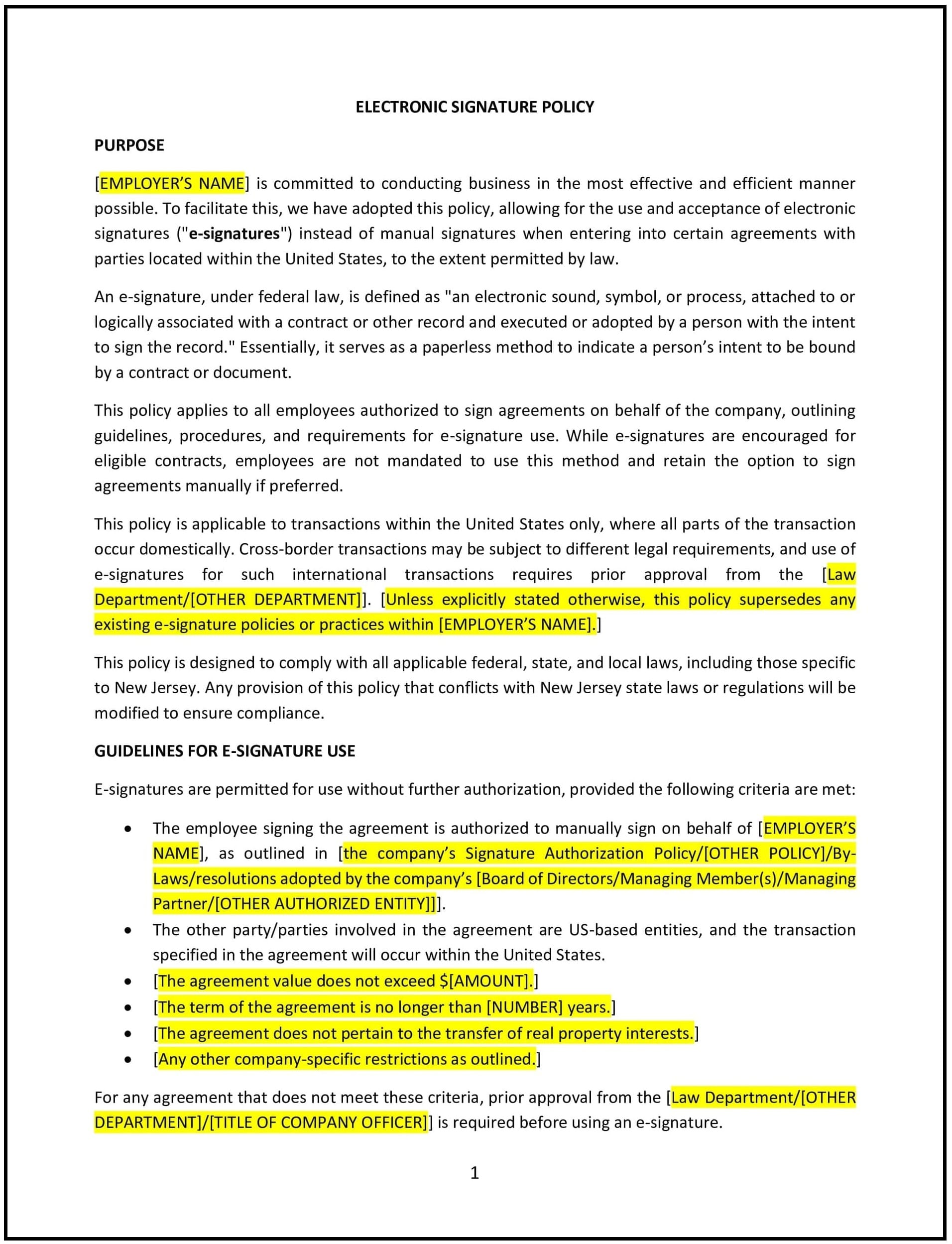Electronic signature (New Jersey) policy: Free template
Got contracts to review? While you're here for policies, let Cobrief make contract review effortless—start your free review now.

Customize this template for free
Electronic signature (New Jersey)
An electronic signature policy helps New Jersey businesses establish guidelines for the use, acceptance, and security of electronic signatures in business transactions. This policy outlines the validity of e-signatures, the types of documents they may be used for, and security measures to protect electronic agreements. It also sets expectations for when physical signatures may still be required.
By adopting this policy, businesses in New Jersey can streamline contract execution, reduce paperwork, and enhance operational efficiency.
How to use this electronic signature policy (New Jersey)
- Define electronic signatures: Clarify that electronic signatures include digital signatures, scanned handwritten signatures, and other legally recognized forms of electronic authorization.
- Establish acceptable use cases: Specify the types of documents that may be signed electronically, such as contracts, agreements, employee forms, and customer transactions.
- Address security and authentication measures: Require the use of encrypted platforms, multi-factor authentication, or other security protocols to verify electronic signatures.
- Outline limitations on electronic signatures: Identify situations where a physical signature may still be required, such as notarized documents or specific regulatory filings.
- Set retention and record-keeping standards: Provide guidelines for securely storing electronically signed documents and maintaining records for audit purposes.
- Detail employee responsibilities: Require employees to use approved e-signature platforms and follow company security procedures when signing or requesting electronic signatures.
- Address disputes and validity concerns: Explain how the business will handle challenges to the authenticity of an electronic signature.
- Review and update: Regularly assess the policy to align with technological advancements, industry practices, and New Jersey e-signature regulations.
Benefits of using this electronic signature policy (New Jersey)
This policy provides several benefits for New Jersey businesses:
- Reduces administrative burden: Minimizes the need for paper documents, speeding up contract execution and document management.
- Enhances security: Requires authentication and encryption measures to protect electronic signatures.
- Increases transaction efficiency: Allows businesses to complete agreements quickly without delays associated with physical document handling.
- Improves record-keeping: Establishes structured storage and retrieval processes for electronic agreements.
- Supports remote and digital workflows: Enables employees, clients, and partners to sign documents from anywhere.
Tips for using this electronic signature policy (New Jersey)
- Communicate the policy clearly: Ensure employees and business partners understand when and how electronic signatures may be used.
- Use secure e-signature platforms: Require approved software with encryption and authentication features to prevent fraud.
- Maintain a backup of signed documents: Store electronic signatures securely and retain access to signed agreements for future reference.
- Train employees on proper e-signature use: Provide guidance on security risks and best practices for handling electronically signed documents.
- Review the policy regularly: Update the policy as needed to reflect technological changes, industry trends, and New Jersey-specific legal considerations.